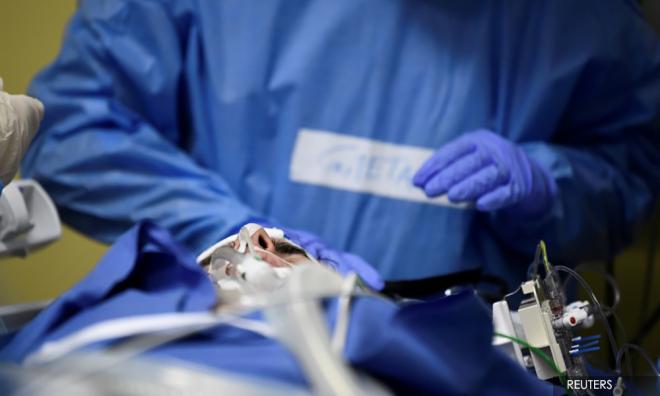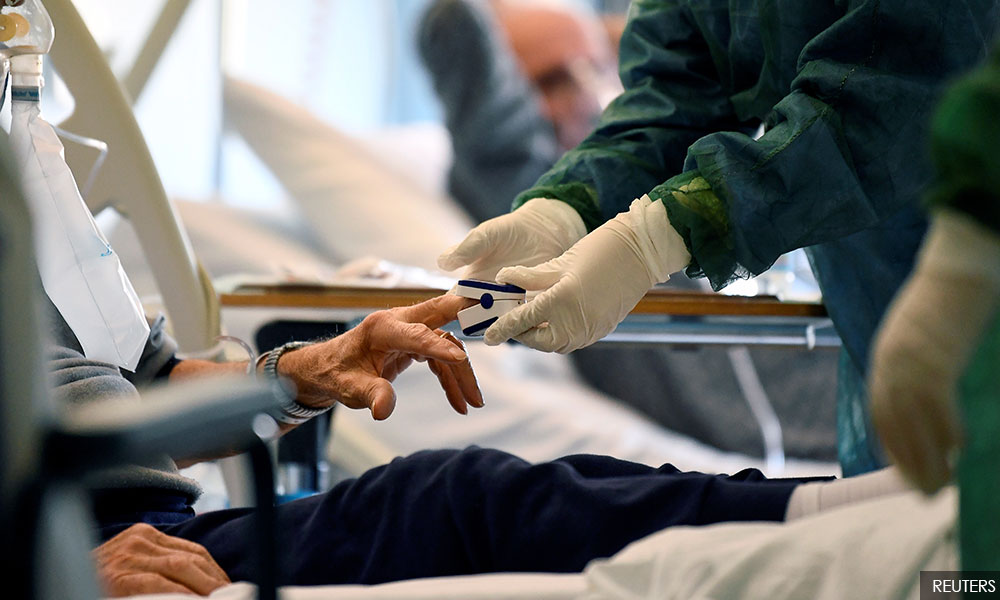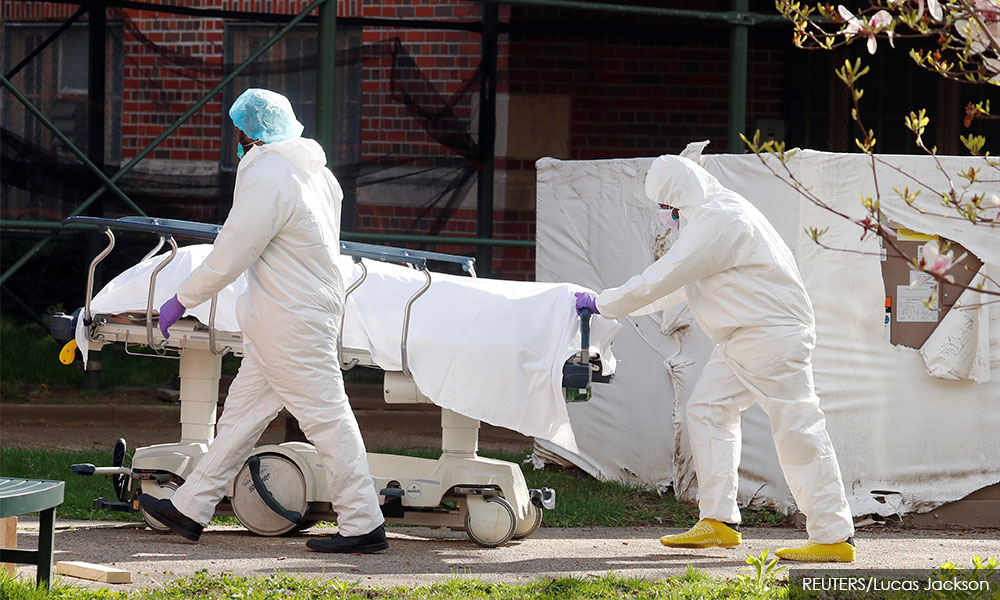
“People pay for what they do, and still more for what they have allowed themselves to become. And they pay for it very simply; by the lives they lead.”
- James Baldwin
In case of 'Patient 1580', Tay Tian Yan of Sin Chew Daily wrote about the Malay blogosphere's reaction to a “Chinese manageress” who did not reveal her travel history nor quarantine herself but went back to work after an overseas trip. Her actions – she was positive for the coronavirus – resulted in 37 infections and the deaths of five members of one of her subordinate's family.
Since the folks who perished were “Malay”, the resulting fallout in the Malay blogosphere was predictable. Tay wrote, “Very unfortunately, such negative sentiment has spread wildly and been given a racist overtone. While tossing curses at the manageress, Malay netizens also hurled hostile allegations against her ethnic community, and we can imagine the language used is not going to be any gracious.”
Tian elaborated, “...This phenomenon occurs not just in the Malay society. When the tabligh gathering at Masjid Seri Petaling spawned a massive infectious cluster in the country, many Chinese netizens cursed not only the participants but their race and religion as well.”
Tay concludes with this: “Where the virus is concerned, there are no racial or religious distinctions in humanity and every single earthling could be its target. The virus will never exempt any specific community or be particularly harsh to another. It is only looking for people who are negligent, ignorant, foolish and stubborn, and such people can come from any ethnic or religious group or nation.”
Is Tay correct when he claims that the virus has exposed the underbelly of racism and prejudice in Malaysia like any disaster would? Tay quotes a recent survey that suggests that “negative” comments against people of different backgrounds have surged during this time of crisis.
While I think it is possible that “feelings” are heightened during this time and more folks have a lot more time to spend venting on the Internet, I think what this virus has demonstrated are the institutional weakness and the deleterious effects of our racial and religious politics.

I will give you an example. While Tay is correct that the virus does not infect based on race and religion, what this virus does is expose the systemic imbalances of the system. For instance, in the American experience, recent data reveals that African Americans are disproportionately impacted by the virus.
US Surgeon-General Dr Jerome Adams, “[…] acknowledges that African Americans are much more vulnerable to Covid-19 due to health disparities and historic racism around housing, education and employment. Adams says he is now focusing on formulating a federal response to address the problem.”
Similarly, the “class” nature of the majority community will come into focus because this pandemic will expose the decades of political and social malfeasance that has been overlooked by successive political establishments. It will also expose the underlying religious agendas of operatives who believe that the current administration is weak and their goals of religious superiority could be cemented at this moment.
Let us take the Seri Petaling incident for example. When I wrote of the Hindu religious festival held during this pandemic, I said: “It is also symptomatic of how religious activities are exempt from public scrutiny on the grounds of religious diversity and national harmony. The reality is that the people who organised this festival and the state/federal institutions that sanctioned them are responsible if the virus flares up into a new cluster.”
Hence the question becomes how the state handles this issue when it comes to religion. In the US for instance, certain states are making an exception for “religious services” to be exempt from lockdown orders to pander to the religious base. The reality is that these religious people, who are gathering in large numbers, believe that their god will save them and in the process jeopardising the lives of other citizens.
In many ways, Malaysia has been proactive in attempting to curtail religious activities but the broader point is that the state is grappling with a recalcitrant minority who for decades have been indoctrinated by religious and racial dogma, through various propaganda arms of the government. This is why we get ministers talking about how some folks are breaking the MCO and attending mosques services, while the state waffles on putting stringent measures on possible Hari Raya balik kampung festivities.
Add to these statements by political operatives relying on dog-whistle politics and arguments of racial economic competition when discussing the impact of the lockdown. The question when it comes to combating this virus is how does the state view religion – in this instance – and how do the state’s mitigating strategies take into account the religious sensitivities of the ruling elites political base?

The racists' online response of "Patient 1580" is in response to the online opprobrium received by the Seri Petaling attendees. The difference, of course, is the numbers involved but also because the manner in which the state has been pussyfooting around. Online discourse is a distraction from the systemic deficiencies brought upon by racial politics that all Malaysians seem to subscribe to.
Our racial strategies
We cannot merely blame the Malay political elite for the system in place. Non-Malay participation in furthering racial and religious supremacy in the power-sharing formula is necessary for non-Malays to participate in the political process and is often overlooked.
Indeed the "Bangsa Malaysia" propaganda which is aimed at the non-Malay communities acts as some sort of narcotising agent for non-Malay discontent while Malays, even in multiracial coalitions, are free, nay, encouraged to display their Malayness either in defence of non-Malay political operatives or as some sort of bona fide against attacks from the Malay far-right.
Hence, racial strategies of the non-Malays are complicit in maintaining divisive politics because the realpolitik of Malaysia is that if we – non-Malays – do not employ these strategies, there would be no line in the sand when it comes to racial and religious supremacy. It also means that we can never really have an honest dialogue about race because we never really acknowledge that we are part of the problem with our fidelity to supposedly multiracial parties in name only and not in policy.
I am an outlier when it comes to the government's response to this pandemic. I happen to believe that this 'Malay über alles' government is on the right track and so far the state security apparatus has been doing a good job. We should separate the political machinations of this current government and their response to this pandemic.
I do think that these MCO exceptions recently announced is a step in the wrong direction.
As it now, we have people lining outside Bank Simpanan Nasional (BSN) because of the announced governmental payouts and the reality is that social distancing guidelines are non-existent. People are still flocking to hypermarkets to stock up on essentials and all of these "exceptions" will place a heavy load on the state security apparatus if enforcement is needed.
The fact that most of the industries mentioned are going to be extremely difficult to monitor and are essentially "soft targets" when it comes to this virus, is a misstep that could come back to haunt this government but more importantly, proves dangerous to the rakyat. I assumed the government was biting the bullet and sailing into the storm instead of attempting various Trumpian moves to avoid it.
My other concern is that Perikatan Nasional's political chicanery will bleed into the state's response. The last thing we need is petty fiefdoms squabbling over power and turf while the country goes through a pandemic.
What I hope folks understand is that the recovery phase of this pandemic will further expose how compromised the system is.
That will be the real test for this government and the Malaysian polity.
S THAYAPARAN is Commander (Rtd) of the Royal Malaysian Navy. A retired barrister-at-law, he is one of the founding members of Persatuan Patriot Kebangsaan. - Mkini


Podah
ReplyDelete